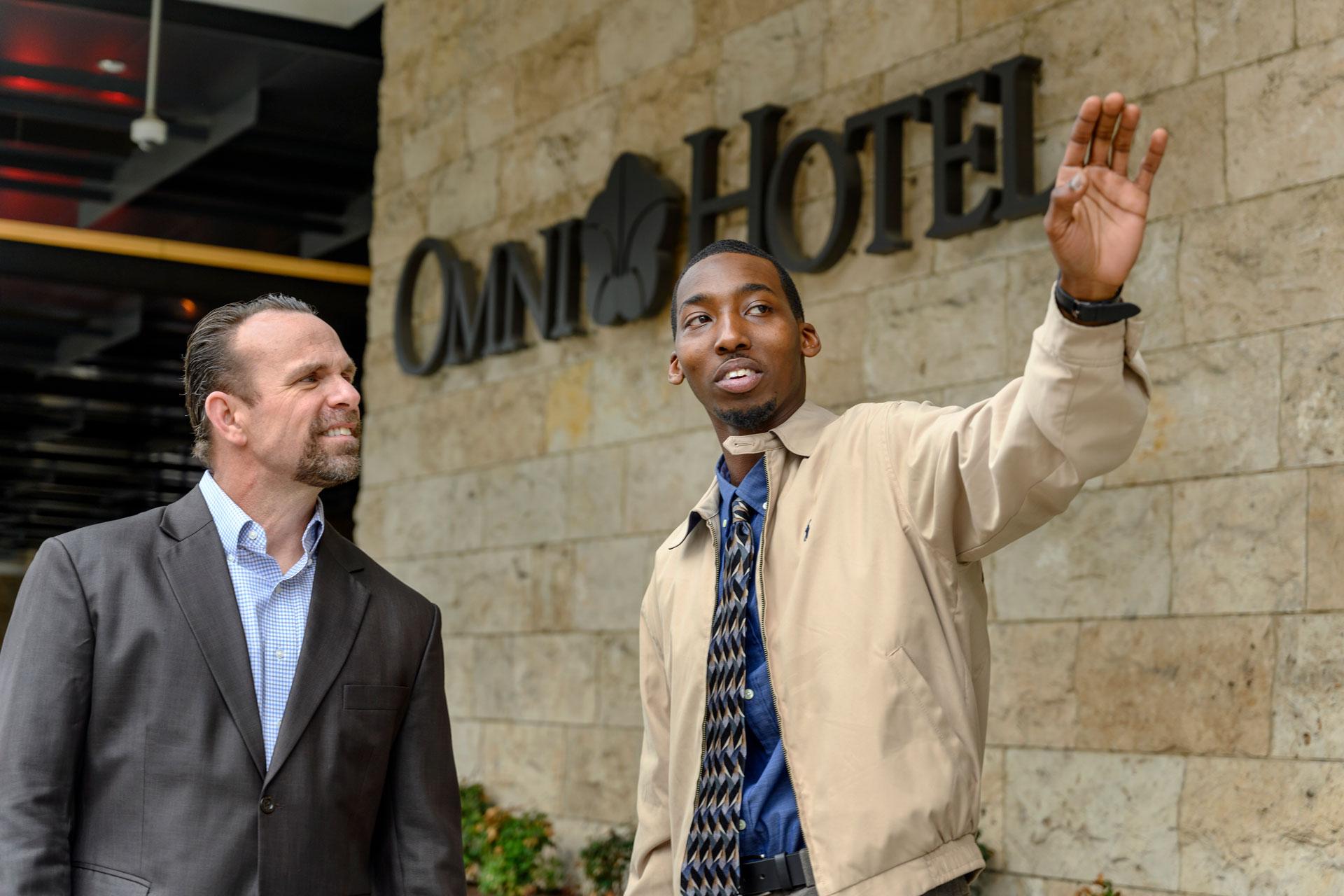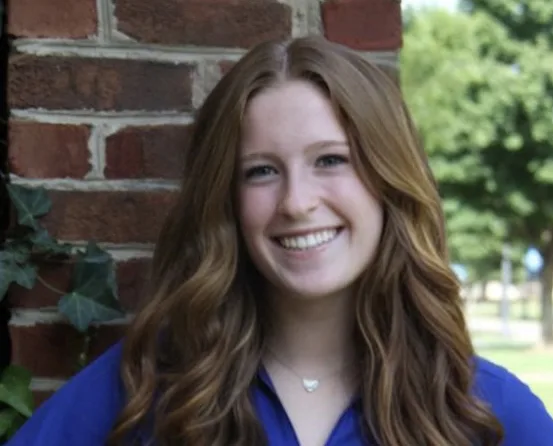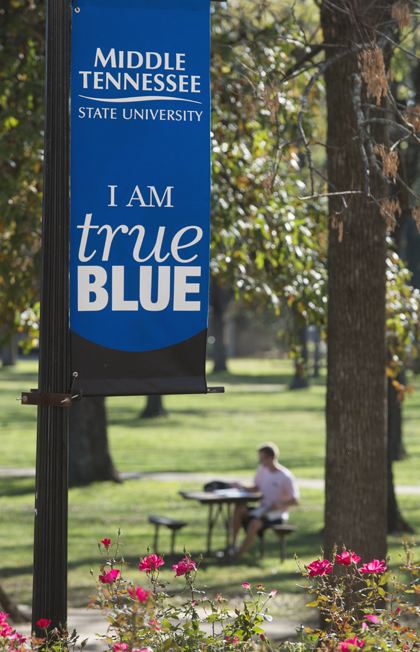
Tourism and Hospitality Management
Join a thriving industry and turn your passion into a rewarding profession.
Tourism and Hospitality Management, B.S.
Escape the Ordinary
The Tourism and Hospitality Management, B.S. degree is proudly offered through the College of Behavioral and Health Sciences at MTSU.
Accredited through the Accreditation Commission for Programs in Hospitality Administration (ACPHA).
Program Overview:
Do you have a passion for travel, event planning, or hospitality? The tourism and hospitality industry is projected to support up to 11.6% of global employment by 2028, including the bustling $6 billion Nashville market. At MTSU, our Tourism and Hospitality Management program provides students with the opportunity to immerse themselves in one of the most dynamic and rapidly growing industries worldwide.
Program Highlights:
- Ranked Among the Best: MTSU's Tourism and Hospitality Management program is recognized for its excellence, recently ranked No. 19 for the Best Affordable Hospitality Management Degree by University HQ.
- Flexible Specializations: Our program offers students the opportunity to customize their education by choosing from three specialized concentrations—Tourism, Hospitality Management, or Event Planning. These concentrations allow students to hone their skills and focus their studies in specific areas of the dynamic industry, providing them with a pathway to pursue diverse and rewarding career opportunities.
- Business Integration: To enhance their understanding of industry principles, Tourism and Hospitality Management students are required to complete a minor in Business Administration or Entrepreneurship from the esteemed Jones College of Business.
- Real-World Experience: Our program includes a practicum component, offering students invaluable hands-on experience in the field and preparing them for the challenges of the industry.
Career Opportunities:
With experiential learning opportunities and strong corporate connections in Nashville, Tennessee, and surrounding communities, our Tourism and Hospitality Management program equips students with the skills and knowledge necessary for a diverse range of career paths, including:
- Event Planning
- Tourism Planning and Development
- Lodging and Resort Operations
- Travel and Tourism Services
- Food and Beverage Management
- Tourism and Hospitality Marketing
- Revenue Management
- Operational Design
- Strategic Decision Making
Empower Your Future:
Join us at MTSU and embark on a journey towards a rewarding career in tourism and hospitality. Explore the endless opportunities available in this dynamic industry and prepare to make your mark.
News Briefs

Meet Sosina Bekele: A Standout in MTSU's Tourism and Hospitality Program
Sosina Bekele, a shining example of excellence within MTSU's Tourism and Hospitality Program, is making waves with her passion and dedication to the industry. Starting with a Bartender license and working at esteemed country clubs and wedding venues, Sosina's journey has led her to her current role as assistant staff coordinator for a staffing company, where she credits her THM education for her success.
As a student representative for the THM program, Sosina showcases her leadership and commitment. Dr. Tan's Destination Management course sparked her interest in Destination Management Organizations (DMOs), marking a pivotal moment in her academic career. Despite being a recent addition to the THM program, Sosina has already seized numerous opportunities, including assisting Dr. Liu with the annual career fair and embarking on a research project with Dr. Whalen.
Beyond her major, Sosina's leadership extends to her role as treasurer of ESO and her efforts to establish connections with industry organizations like the Southeast Tourism Society and NACE. Her aspirations lie in working for a DMO, focusing on community building and empowerment—a testament to her passion for the industry.
For prospective THM students, Sosina offers clear advice: "If you're interested in the industry, the THM program at MTSU is your ticket to success. You'll gain invaluable connections, comprehensive knowledge, and mentorship from dedicated faculty." Join Sosina in shaping the future of tourism and hospitality at MTSU!

Meet Emily Groves: A THM Success Story at MTSU
Formerly an Interior Design major, Emily Groves switched to Tourism and Hospitality Management (THM) during her sophomore year—a move that sparked her passion and led to remarkable growth. As the Development and Retention Chair for the Blue Elite Tour Guide, Emily guides prospective students and promotes diversity.
Emily's role as Student Event Specialist Coordinator showcases her versatility in event planning, while her research on virtual reality in travel earned her a grant from MTSU's Undergraduate Research Experience and Creative Activity (URECA).
Guided by Dr. Yi Liu, Emily's academic journey flourished through research projects and mentorship, leading to internships and industry connections. Actively engaging in student organizations like the Southeastern Tourism Society, she stays informed about industry trends.
MTSU's THM program significantly contributed to Emily's personal and professional growth, offering a dynamic curriculum, supportive faculty, and hands-on experiences. She aspires to work at a Convention and Visitors Bureau and become an event planner, equipped with practical insights gained from her MTSU journey.
To future THM students, Emily advises embracing diverse opportunities, engaging in coursework, and connecting with professors for guidance and networking. MTSU's THM program stands out for its versatility, academic excellence, and emphasis on sustainability, offering a unique learning environment tailored to each student's needs. Join Emily in the THM journey at MTSU!
News Briefs
Meet Sosina Bekele: A Standout in MTSU's Tourism and Hospitality Program

Sosina Bekele, a shining example of excellence within MTSU's Tourism and Hospitality Program, is making waves with her passion and dedication to the industry. Starting with a Bartender license and working at esteemed country clubs and wedding venues, Sosina's journey has led her to her current role as assistant staff coordinator for a staffing company, where she credits her THM education for her success.
As a student representative for the THM program, Sosina showcases her leadership and commitment. Dr. Tan's Destination Management course sparked her interest in Destination Management Organizations (DMOs), marking a pivotal moment in her academic career. Despite being a recent addition to the THM program, Sosina has already seized numerous opportunities, including assisting Dr. Liu with the annual career fair and embarking on a research project with Dr. Whalen.
Beyond her major, Sosina's leadership extends to her role as treasurer of ESO and her efforts to establish connections with industry organizations like the Southeast Tourism Society and NACE. Her aspirations lie in working for a DMO, focusing on community building and empowerment—a testament to her passion for the industry.
For prospective THM students, Sosina offers clear advice: "If you're interested in the industry, the THM program at MTSU is your ticket to success. You'll gain invaluable connections, comprehensive knowledge, and mentorship from dedicated faculty." Join Sosina in shaping the future of tourism and hospitality at MTSU!
Meet Emily Groves: A THM Success Story at MTSU

Formerly an Interior Design major, Emily Groves switched to Tourism and Hospitality Management (THM) during her sophomore year—a move that sparked her passion and led to remarkable growth. As the Development and Retention Chair for the Blue Elite Tour Guide, Emily guides prospective students and promotes diversity.
Emily's role as Student Event Specialist Coordinator showcases her versatility in event planning, while her research on virtual reality in travel earned her a grant from MTSU's Undergraduate Research Experience and Creative Activity (URECA).
Guided by Dr. Yi Liu, Emily's academic journey flourished through research projects and mentorship, leading to internships and industry connections. Actively engaging in student organizations like the Southeastern Tourism Society, she stays informed about industry trends.
MTSU's THM program significantly contributed to Emily's personal and professional growth, offering a dynamic curriculum, supportive faculty, and hands-on experiences. She aspires to work at a Convention and Visitors Bureau and become an event planner, equipped with practical insights gained from her MTSU journey.
To future THM students, Emily advises embracing diverse opportunities, engaging in coursework, and connecting with professors for guidance and networking. MTSU's THM program stands out for its versatility, academic excellence, and emphasis on sustainability, offering a unique learning environment tailored to each student's needs. Join Emily in the THM journey at MTSU!
Related Media

Career Opportunities:
With a THM degree from MTSU, students are poised to pursue fulfilling careers in event planning, food and beverage management, lodging and resort operations, tourism and hospitality marketing, strategic decision making, and beyond. Graduates of the THM program are well-prepared for a diverse array of career paths, including but not limited to:
- Convention and Conference Planner
- Hotel Manager
- Director of Sales
- Marketing Manager/Director
- Restaurant Owner and Operator
- Event Planner
- Theme or Amusement Park Manager/Director
- Tourism Planning and Development Specialist
Embark on a journey of exploration and opportunity with a degree in Tourism and Hospitality Management from MTSU. Join us in shaping the future of the industry and unlocking exciting career pathways.



MTSU Tourism and Hospitality Program Overview
Mission Statement
Our mission is to develop leaders who are passionate and well-rounded critical thinkers to contribute to the growth and innovation of the tourism and hospitality industry in the greater Tennessee area.
Vision Statement
We will enhance the image of MTSU by becoming the top tourism and hospitality program in Tennessee in the next five years.
Core Values
- Curiosity & Innovation. Pursuit of knowledge, understanding, and learning; a sense of inquisitiveness and exploration that leads to innovation, idea generation, and positive change.
- Perseverance & Integrity. Persistence in the face of adversity and challenge; a will to overcome difficulties and obstacles while maintaining honesty, morality, and personal principle.
- Relationships & Experience. Creation of an environment of collaboration, communication, and connection; a desire to build a community with peers, colleagues, and mentors through active engagement, working in teams, participating, and being present.
Program Learning Outcomes
- Identify and apply the knowledge and skills necessary for hospitality and tourism operations.
- Develop and integrate a core set of business skills necessary to successfully operate a hospitality and tourism organization.
- Demonstrate competence in the communication skills necessary for hospitality and tourism management.
- Formulate business decisions in hospitality and tourism management.
- Evaluate leadership principles necessary in the diverse and global hospitality and tourism industry.
Specialization PLOs:
Tourism Specialization PLOs:
- Utilize tourism concepts and business management knowledge to function effectively as a tourism professional.
- Demonstrate knowledge of best practices to further responsible tourism.
- Analyze information and develop solutions for tourism businesses by using skills associated with critical thinking, problem solving, decision making, and creative thinking.
Hospitality Specialization PLOs:
- Understand the complexity of hospitality organizations and the many areas that help organizations function efficiently and strategically.
- Demonstrate an in-depth understanding of the strategic management within the hospitality industry.
- Analyze philosophies, principles, concepts, processes, tools, and techniques of various strategic management theories and application within the hospitality operations.
Event Specialization PLOs:
- Utilize the components of event planning and distinguish the logistics for different types of events (e.g., conferences, weddings, festivals, concerts, and sports events) to create an innovative, efficient, and manageable plan
- Demonstrate business skills related to event planning (e.g., detail-oriented operation, time management, budgeting, communication, critical thinking, and leadership) to put into practice to solve uncertain issues while executing events effectively
- Evaluate the goals and outcomes of an event to measure the event’s performance and produce an improved plan
Transfer Students:
We accept a maximum of 12 credits transferred for core/specialization courses plus up to three approved electives for an additional 9 credits.
Tourism and Hospitality Management Minor
The minor in Tourism and Hospitality Management requires 15 semester hours.
Required (9 hours)
-
THM 3200 – Principles of Lodging 3 credit hours OR
-
THM 3250 – Destination Management 3 credit hours OR
-
THM 3350 – Event Planning 3 credit hours
Electives (6 hours)
- LSTS 4850 – Cross-Cultural Perspectives in Leisure and Tourism 3 to 6 credit hours
- THM 3110 – Tourism Planning and Development 3 credit hours
- THM 3200 – Principles of Lodging 3 credit hours
- THM 3210 – Service Design and Delivery in Tourism and Hospitality Management 3 credit hours
- THM 3250 – Destination Management 3 credit hours
- THM 3350 – Event Planning 3 credit hours
- THM 3360 – Weddings and Special Events 3 credit hours
- THM 4130 – Sport Tourism 3 credit hours
- THM 4140 – Food and Beverage Tourism 3 credit hours
- THM 4160 – Event Risk Management 3 credit hours
- THM 4167 – Hospitality Revenue Management 3 credit hours
- THM 4220 – International Tourism 3 credit hours
- THM 4267 – Hospitality Technology 3 credit hours
Clubs and Organizations:
Southeast Tourism Society (STS) Student Chapter
THM Advisory Board:
| Member | Company/Organization | Position |
| Erica Carvalho | Loews Hotel & Co. | Corporate Director of Catering and Conference Services |
| Bill Boothe | The Boothe Group, LLC | President |
| Shannon Jones | Destination South Meetings & Events | Senior Manager, Meetings and Events |
| Michael Seabrook | Belle Meade Country Club | GM/COO |
| Jan Freitag | CoStar Group | National Director, Hospitality Analytics |
| Barbara Ford | Savage LLC | Strategic Planning Facilitator |
| Chelsa Lourie | Cambria Downtown Nashville | HR Manager |
| Sara Beth Urban | Hospitality TN | President & CEO |
| Barbara Wolke | Rutherford County Convention and Visitor Bureau | Sr. Vice President |
| Monica Smith | Southeast Tourism Society | President & CEO |
| Matt Maxey | Visit Franklin | Director of Public Relations |
| Kristin Luna | DMA-Events, Self-employed | Journalist, Digital Strategist & President |
| Jesse Hayes | Gaylord Opryland | Director of Revenue Management |
| Richard Sprecher | Resolute Road Hospitality | Vice President, Business Development |
| Susan Faro | MTSU Tourism & Hospitality Management | Student Representative |
| Campbell Bledsoe | MTSU Tourism & Hospitality Management | Student Representative |
| Riley Moon | MTSU Tourism & Hospitality Management | Student Representative |

CONTACT US

Please fill in the form below and we will contact you very soon











